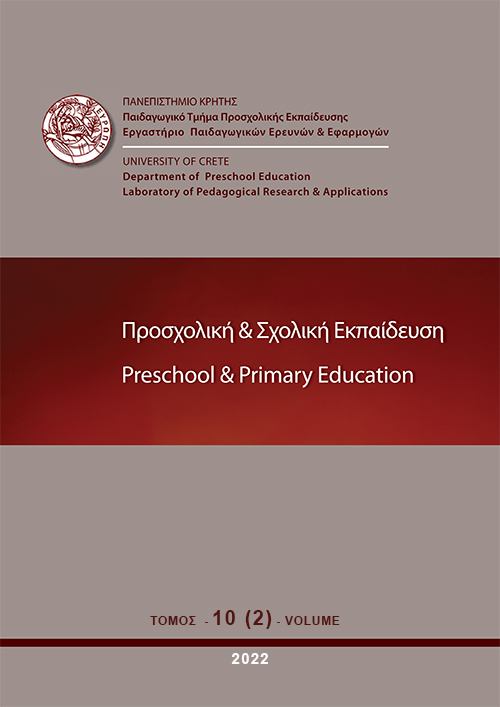Building a new pedagogical decision-making agenda: The role of student leadership in conditions of cultural pluralism
Abstract
Modern literature has repeatedly focused on the diverse role of student voices and how they influence the processes of change and school improvement. However, the ways in which children themselves interpret their roles as leaders have not been explored, especially in environments characterized by cultural pluralism. The research we present focuses on the voluntary nature of leadership by students that allows them to become equal co-producers of a new pedagogical decision-making agenda. Our sample consisted of 36 students who attended four provincial secondary schools in the Prefecture of Fthiotida. The qualitative method was used to collect research data using semi-structured interviews. What emerged from the processing of the research material were spontaneous socio-activist initiatives and actions undertaken by the students which foreshadow on the one hand the achievement of a social and educational transformation, and on the other hand the transformation of students from "citizens-in-waiting" to authentic school co-shapers. The results of the study can have multiple implications both in the field of educational policy and that of school practices.
Article Details
- How to Cite
-
Sarkos, G., & Chatzisotiriou, C. (2022). Building a new pedagogical decision-making agenda: The role of student leadership in conditions of cultural pluralism. Preschool and Primary Education, 10(2), 221–238. https://doi.org/10.12681/ppej.28032
- Section
- Articles

This work is licensed under a Creative Commons Attribution-NonCommercial-ShareAlike 4.0 International License.
Authors who publish with this journal agree to the following terms:
- Authors retain copyright and grant the journal right of first publication with the work simultaneously licensed under a Creative Commons Attribution Non-Commercial License that allows others to share the work with an acknowledgement of the work's authorship and initial publication in this journal.
- Authors are able to enter into separate, additional contractual arrangements for the non-exclusive distribution of the journal's published version of the work (e.g. post it to an institutional repository or publish it in a book), with an acknowledgement of its initial publication in this journal.
- Authors are permitted and encouraged to post their work online (preferably in institutional repositories or on their website) prior to and during the submission process, as it can lead to productive exchanges, as well as earlier and greater citation of published work (See The Effect of Open Access).



